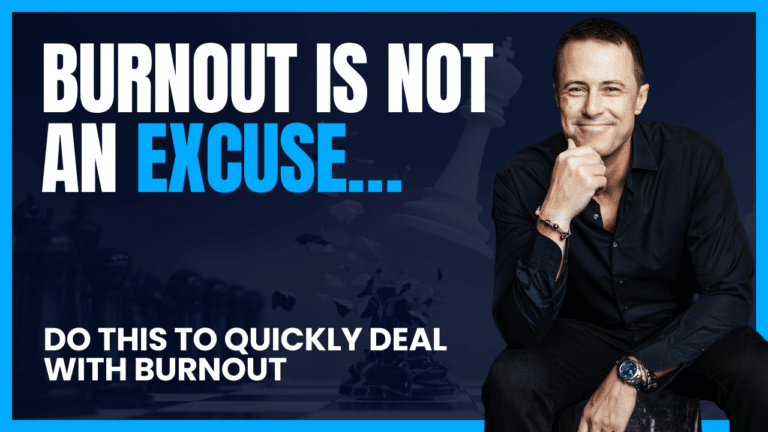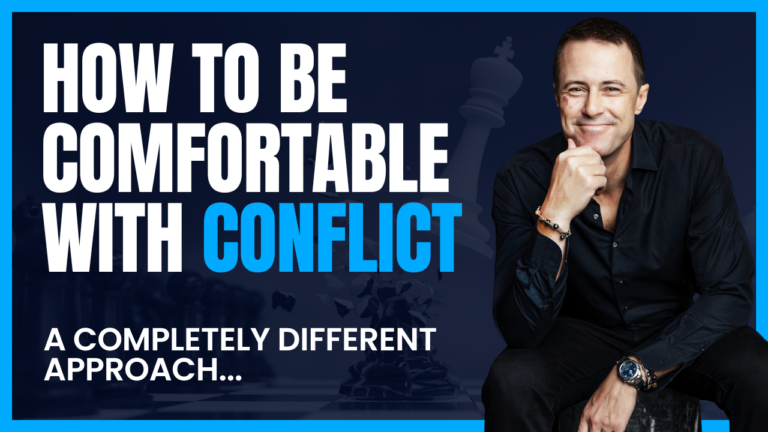The Desire Dilemma: How to Define and Pursue What Matters Most
“There are three things extremely hard: steel, a diamond, and to know one’s self.” – Benjamin Franklin
It’s not easy to know yourself (and by extension, what you truly desire). But, taking the time to get crystal-clear on what you want is extremely important because it determines how you spend your time, resources, and energy.
Better to choose what you want than to have it chosen for you.
Do You Know What You Want Or Are You Just Telling Yourself You Do?
If you don’t know what you truly want, how do you decide where, when, and how to invest your time, energy, and resources?
By the time you finish this, you’re going to know:
- The one way you should never define what you want.
- The only justification you need for wanting what you want.
- How to respond to the people who tell you it’s not okay to want what you want.
You’re also going to walk away with tools you can use and more clarity about what you want to create, experience, and enjoy in life.
Here’s Why It’s Okay To Want What You Want
Some people hold back when asked what they really want. That’s unfortunate because they are unlikely to achieve that which they refuse to acknowledge. Let’s make a few distinctions so you don’t fall into that trap.
- Needs are socially justifiable.
- Wants need no justification.
Read number two again.
I believe one of the reasons many people don’t know what they want is because they have been conditioned to only want what they can justify to their friends, family, and peers.
That’s not the way desires work.
If you are adding a ‘because…’ after the thing you want, you are probably trying to justify it.
The only reason you need for wanting what you want is that you want it. That’s it. Your desires justify themselves.
Naturally, check in and make sure your desires are not harmful to others.
Don’t Define Your Desires Like This…
When I ask people what they want, most people start with the opposite. They tell me what they don’t want:
- I don’t want to be like my parents.
- I don’t want to lose it all.
- I don’t want anyone to know that I’m winging it.
- I don’t want to die alone.
In many ways, it’s more acceptable to talk about what we don’t want than what we do. Strategically, it’s a nightmare approach. Here’s why…
Nature Hates a Vacuum
Have you ever heard someone say, ’I don’t want to be like my parents…’? If you had to bet, are they going to be more or less like their parents over a long enough time frame?
Let’s find out why.
If someone said, ’I do not want to be like my parents…’, and you had to describe what that looks like, sounds like or feels, what would you say?
It’s difficult to define the ‘not’ of something.
‘Not being like your parents’ is incredibly vague.
‘Nothing’ is the absence of something. Nothing is a vacuum, and…
Nature hates a vacuum (and seeks to fill it with whatever is available). Will you like what it fills it with? Probably not. Here’s why…
You Are Built To Survive
You are built for survival, which means your body is built to be smart about how you use the fuel that’s powering your brain.
In my experience, your brain isn’t going to burn extra fuel trying to figure out what you mean when you say you don’t want to be something.
Instead, your brain is going to take a shortcut – it’s going to delete the negation (i.e. ‘not’). Here’s how that plays out:
’I don’t want to be like my parents!’ could mean almost anything. Your mind is going to simplify and it’s going to do it as efficiently as possible by deleting the negation (i.e. ‘not’).
’I don’t want to be like my parents!’ turns into ‘I WANT to be like my parents.’
What you focus on expands. Say, ’I don’t want to be like my parents!’ often enough, and one day, you will wake up horrified to discover you have become that which you wanted to avoid.
Here’s a simple tool to fix that problem…
Invert What You Don’t Want To Discover What You Do Want
If you know what you do not want, we can work with that. Write it down or say it out loud. Now, what is the opposite of that?
You may have to fill in a few details, but inverting what you don’t want will start to get you into the right neighborhood.
For example, if you don’t want to lose it all the opposite would be to keep it all or to have and keep it all.
Sometimes, the inverse won’t be very clear. In that case…
Get Specific Or Use ‘Bridge Building’
You may need to get more specific about what you don’t want. Using the parent example, ’I don’t want to be like my parents.’ might benefit from what I like to call a little ‘bridge building.’ For example,
- Starting, Negative Desire: ’I don’t want to be like my parents.’
- Reason Bridge: ’I don’t want to be like my parents, because they were filled with scarcity.’
- Meaning Bridge: ’I don’t want to be like my parents, because they were filled with scarcity, which meant they never really took the time to enjoy life because they were always focused on what was going out the door.’
- Contrast Bridge: ’I don’t want to be like my parents, because they were filled with scarcity, which meant they never really took the time to enjoy life because they were always focused on what was going out the door instead of how they could make more.’
- Clarified Desire: ’I want to make more so I can enjoy more. I want to enjoy life. I want to enjoy delicious food. I want to travel. I want to spend more time with the people I love.’
Do you notice how much easier it will be to strategize, plan, and take action that will help you create, experience and enjoy the clarified desire?
Not Everyone Will Agree With What You Want
Some people are going to tell you that you shouldn’t want what you want. They are going to have a better plan for you. Their plan is going to make them seem more virtuous (at your expense). They’re going to say you could use the money, time, or energy into something like helping the less fortunate. Here’s what’s happening in most cases:
- They are playing a zero-sum game (with your resources). They are assuming if you allow yourself what you want, you do so at the expense of something else.
- They are probably not practicing what they suggest because playing zero-sum games results in winners and losers. Guess which category they feel like they are in.
How you respond depends on the amount of energy you want to contribute to the conflict.
I’ve found that it’s often more productive to respond with a statement (e.g. ‘Thanks for sharing.’) or a question (e.g. ‘What if life is not a zero-sum game?’).
They aren’t living your life, so don’t give them too much of your life-force energy.
This Is Your Life – Go For What You Want
Not many of the detractors are going to be around at the end. Instead, you’ll probably have an opportunity to look back over all the days that have passed.
- What are you going to wish you had created?
- What are you going to wish you had allowed yourself to experience?
- Which risks are you going to wish you had taken?
- What are you going to wish you had done more of?
Honor yourself. Be true to yourself. Live your life like nobody else can…
Claim what you want. Create it. Allow yourself to enjoy it.
Jason Ayers helps high-achievers make big decisions and bold moves in 90 days or less…
Jason drives profound transformation through his five-step Visionary Alignment Process, helping leaders reveal hidden patterns, clarify true desires, and align Mind, Mission, and Systems for lasting impact.
The result? Clients who finally begin to feel as successful on the inside as they appear on the outside. His clients don’t just optimize – they evolve.
Ready to step into the best version of yourself?
Warning: side-effects may include improved relationships, exceeding your goals, feeling more fulfilled and falling in love with your life.




